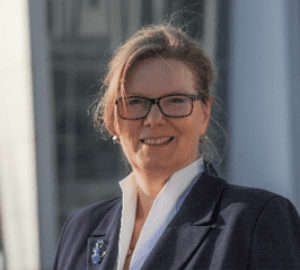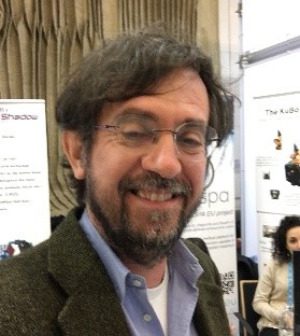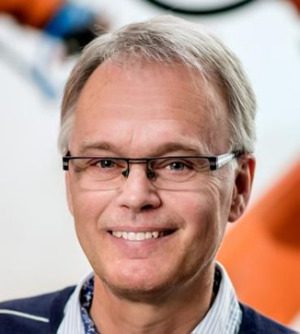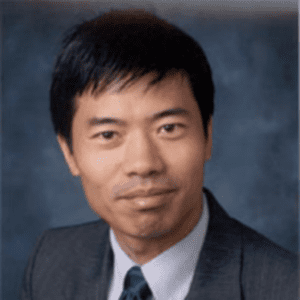August 28th, 2024 | Bari, Italy
Autonomous systems are increasingly becoming integral to the development of smart cities, encompassing a wide range of applications beyond just vehicles. These systems include drones for surveillance, robots for maintenance, and AI-driven software for managing city infrastructure. Research in this field aims to enhance urban safety, reduce environmental impact, improve public services, and ensure sustainable urban development.
Our Summer School intends to showcase the latest advancements in autonomous systems research relevant to smart cities, providing insights to students, academic researchers, and industrial practitioners. The goal is to explore the integration of autonomous systems into various smart city scenarios, including traffic management, public safety, waste management, and energy efficiency.
The summer school will be supported by the RAS TC Automation Cluster and the following RAS Technical Committees: Automation in Logistics, Agricultural Robotics and Automation, Digital Manufacturing and Human-Centered Automation, Performance Evaluation & Benchmarking of Robotic and Automation Systems.
Organizers
- Maria Pia Fanti, Polytechnic University of Bari, Italy | mariapia.fanti@poliba.it
- Birgit Vogel-Heuser, Technical University of Munich, Munich, Germany | vogel-heuser@tum.de
- Angela Faragasso, University of Tokyo, Tokyo, Japan | angelafar86@gmail.com
- Fabio Bonsignorio, University of Zagreb | fabio.bonsignorio@gmail.com
Program
- Date: August 28th, 2024
- Time: 9:00 – 17:00
The program will consist of five talks, each lasting 90 minutes.

9:00-10:30 | Birgit Vogel-Heuser
Digital Twins to Improve Engineering and Operation of Machines and Plants for Increased Autonomy
Digital Twins in automated Production Systems shall support longevity of such systems as well as adaptability and thereby enable Industry 5.0 and autonomy in the future. The talk will introduce the specific requirements, challenges and potential benefit of Digital Twins for such long living aPS as well as the technologies used. Three main aspects are discussed; model driven engineering for traceability and maintenance, (De-)Composability of control software to improve adaptability and autonomy and evolvability of DTs by learning during operation. Application examples like the extended Pick and Place Unit, the MyYoghurt plant and the Bavarian KI. Fabrik illustrate the approach

10:30-12:00 | Fabio Bonsignorio
Reproducible and Measurable research in AI and Robotics for Smart Cities
We will highlight the importance of a wider adoption of reproducibility and benchmarking methods to accelerate research and ease the technology transfer of research results in AI and Robotics. We will discuss the importance of reproducible research for dependability in smart city applications. We will illustrate the epistemological and theoretical basis of current methods and describe the best practices. We will have a look at closer and less close future developments.

12:00-13:30 | Bengt Lennartson
Robust and Data-efficient Reinforcement Learning and Fast Optimal Planning
Model-free reinforcement learning (MFRL) is very popular, but practical experience shows that MFRL both requires a lot of data and is very sensitive to high frequency resonances. Furthermore, the reward shaping is both critical and time consuming. In this talk, these problems are illustrated, and a couple of simple and efficient strategies are proposed. The strategies are applied to energy optimization of moving devices, including eco-driving of electric cars and trucks. It is also shown how constraint programming (CP) combined with a satisfiability (SAT) solver can be used for planning, based on Petri nets. Optimal plans can then be generated 100-1000 times faster compared to standard strategies.

14:30-16:00 | MengChu Zhou
Autonomous Vehicle Group: Formation, Cooperation and Evolution in Internet of Vehicles
Vehicle groups that are composed of autonomous vehicles can increase the perception range of vehicles, and their dynamic evolution can provide guidance for the effective operation of autonomous vehicles. Most existing studies on vehicle group formation neither propose a standard vehicle group model, nor consider vehicle mobility and dynamic topology of vehicle groups. Instead, they focus on detecting dynamic evolution without predicting it. This talk presents the dynamic formation, cooperation, evolution and prediction for autonomous vehicle groups, thus benefiting the effective operation of smart cities.

16:00 – 17:30 | Maria Pia Fanti
New Approaches for Managing Urban Mobility Involving Cooperative, Connected and Automated Vehicles
The number of cooperative, connected and automated vehicles (CCAVs) in urban areas will gradually increase soon. As a consequence, mixed traffic made of both regular human driven and CCAVs will likely be a typical scenario over the next few years. The short course will present some approaches for cooperative, connected and automated mobility. In particular, some strategies based on Artificial Intelligence tools and traffic simulation will be presented for collision detection and avoidance at intersections, route planner in the urban areas and car pooling services.
Practical Information
- Location: The Summer School will be held at the Hotel Nicolaus in Bari, Italy (the same venue as the CASE 2024 conference). More information about the venue is available here.
- Travel: The Puglia region, home to Bari, can be easily reached by air, rail, land, and sea. Please visit this page for information and tips on traveling to Bari, navigating within the city, and exploring the surrounding areas.
- Visa and invitation letter: Participants requiring a visa can find detailed information here. Invitation letter can be issued upon request only after the selection procedure.
Registration fee
The registration fee for the summer school is €60, which includes lunch and a coffee break. This fee does NOT cover accommodation or travel expenses. The registration fee will only be required upon selection through the registration system provided via mail.
Please note that the registration for the summer school is independent of registration for the CASE conference. Registering for one does not include registration for the other, and vice versa.
Application Form
To apply, please complete the application form below, providing accurate and up-to-date information. Attach your CV, highlighting your academic background, research experience, and relevant publications.
Participants will be selected based on the following criteria:
- Maximum 35 students and young researchers, with at least 20 being IEEE RAS (graduate) student members
- Number of Published Papers
- Relevance of the research subject to the topic of the Summer School
